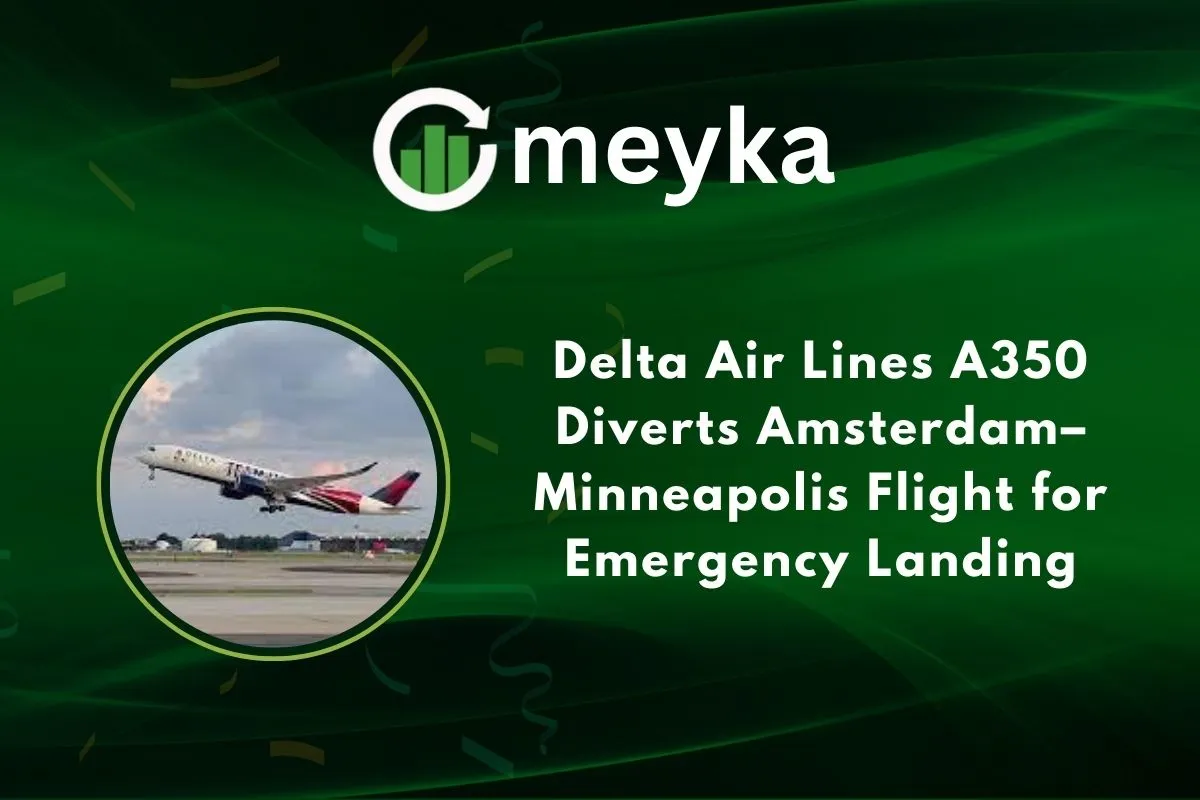Delta Air Lines A350 Diverts Amsterdam–Minneapolis Flight for Emergency Landing
Delta Air Lines Flight DL161, an Airbus A350-900, left Amsterdam bound for Minneapolis on September 8, 2025. Only 45 minutes into the flight, over the North Sea, the crew declared an emergency. They returned swiftly to Schiphol Airport, and everyone on board landed safely. Moments like this show how aviation safety is always in motion. We see how crew training, modern systems, and quick decisions all matter most when things go wrong.
The Incident
Flight DL161 took off from Amsterdam at 09:40 local time. Soon after cruising at 33,700 feet, the crew reported a pneumatic system malfunction and issued a 7700 emergency code. Air traffic control cleared them to turn back. The A350 circled in holding, then landed safely at Schiphol about 11:30 a.m.
This A350, tail number N521DN with Team USA livery, was only 1.4 years old. These systems control cabin air pressure, maintain temperature, and deliver airflow to the engines. Any malfunction is critical, which is why safety was prioritized.
Passenger Experience
On board, passengers likely felt tense and alarmed. Still, the crew’s calm tone and clear instructions made a huge difference. Schiphol’s emergency teams, fire trucks, and medical staff were prepped as the plane touched down. No injuries were reported. Passengers later shared relief and gratitude on social media; many thanked the crew and first responders for acting fast.
We see how trust plays a key role. When we fly, we rely on pilots, crew, and safety systems. Here, every piece worked, and passengers felt that.
Airline Response
Delta confirmed that safety is its top priority. The airline said all passengers and crew were safe and that it followed proper procedures. Maintenance teams will fully check the aircraft before it returns to service. Support for passengers, like rebooking or care, was promised, but details are pending.
Aviation Safety Procedures
When alarms go off, pilots act fast. They declare emergencies, squawk 7700, and work with air traffic control to land quickly. Emergency teams stand by, and safety checks follow. This layered response keeps risks low and shows how modern aviation is built for redundancy and response.
Technical Perspective
A pneumatic system failure is serious. It powers essential functions like cabin air, pressurization, engine starts, and anti-icing. Without it, the risk increases. Airbus A350s are highly reliable, but like any sophisticated machine, they depend on thorough maintenance. When systems stop working, crews don’t take chances.
Impact on Operations
An unexpected return affects more than just one flight. Scheduling, crews, and gates all shift. Additional expenses include fuel, operational logistics, and support for passengers. Still, by acting quickly, Delta limited downtime and avoided broader disruption at one of Europe’s busiest hubs.
Industry Context
Diversions are rare, especially in modern jets. But when they happen, airlines follow strict rules. Similar events have occurred, like when another Delta flight from Rome to JFK declared an emergency due to hydraulic issues. Each event reinforces the importance of a proactive response.
Passenger Rights & Compensation
Flight from Europe to the U.S. falls under EU Regulation 261, which may entitle passengers to accommodations, meals, and compensation depending on the length and the cause. Although this diversion was safety-driven, Delta is expected to comply with passenger care norms, rebooking, lodging, and meal support.
Broader Implications
This incident reminds us that safety is never optional. A minor fault can escalate quickly, yet aviation systems exist to handle exactly that. When things go wrong, protocol, training, and technology rise to the challenge. It’s a reminder of how coordinated aviation truly is.
Conclusion
Flight DL161’s diversion was a clear case of safety-first thinking. We saw how the Airbus A350’s systems, the pilots’ decision-making, and Schiphol’s emergency readiness blended seamlessly to protect lives. This episode reinforces confidence in modern aviation. Now, as repairs and checks go on, we’re reminded that every flight depends on people, process, and purpose.
FAQS:
The Delta Airbus A350 made an emergency landing because of a pneumatic system failure. This system controls air pressure and other vital functions, so pilots acted fast to protect safety.
Delta Air Lines is an American company. It is owned and operated in the United States. The airline is based in Atlanta, Georgia, and serves worldwide destinations.
A Delta flight from Milan to Atlanta recently encountered strong turbulence, causing injuries to several passengers as well as crew on board. About 25 people needed hospital treatment after the unexpected rough air.
Disclaimer:
This content is for informational purposes only and is not financial advice. Always conduct your research.






